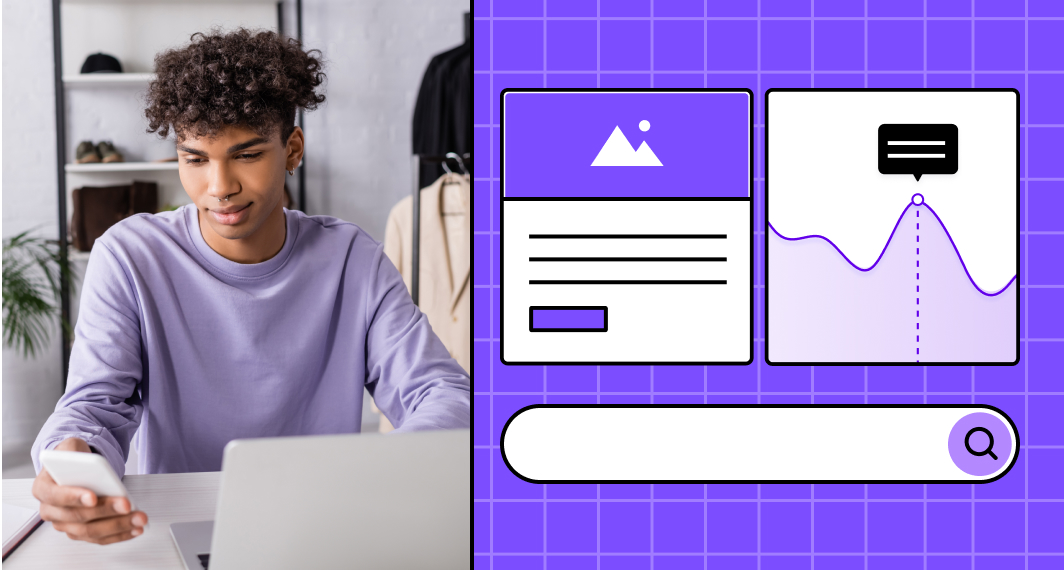What is cross-platform app development?
Cross-platform app development is a method where you create a single application that can run on multiple operating systems, like iOS, Android and more. In this approach, some or even all of the source code in cross-platform apps can be shared.
A cross-platform approach to app development saves you time and resources, making it easier to reach a wider audience with your app. You use cross-platform frameworks or tools like React Native, Flutter, or Xamarin to build apps that share a common codebase.
How do cross-platform apps differ from native apps?
Native apps are apps specifically developed for a particular mobile operating system or platform. These apps are written in programming languages and frameworks that are native to the target platform.
For instance, native iOS apps are typically coded in Swift or Objective-C, while native Android apps use Java or Kotlin.
Other than the development approach, cross-platform apps and native apps differ in several ways 👇
Cross-platform apps | Native apps | |
Performance | Slower than native apps | Offers high performance |
Access to native features | Require additional plugins for accessibility | Full access to the device’s native features |
User experience | Inconsistent across platforms | Seamless and optimised to the chosen platform |
Development time and costs | Cost-effective and faster development | Time consuming and costly |
Updates and maintenance | Easier to maintain and update | Require separate updates for each platform |
1 - Performance
Cross-platform apps may exhibit slightly slower performance due to an additional layer of abstraction that ensures compatibility across multiple platforms. This abstraction also results in limitations on accessing device-specific features.
On the other hand, native apps don’t have the abstraction layer and therefore offer superior performance, particularly for resource-intensive tasks.
2 - Access to native features
For cross-platform apps, access to platform-specific features may be limited or require additional plugins or workarounds.
By contrast, native apps have direct and full access to all native features, providing a seamless user experience.
3 - User experience and design
Cross-platform apps may have some design and user experience inconsistencies across platforms, although this gap has been narrowing with advancements in cross-platform tools.
Meanwhile, native apps can provide a more consistent and platform-specific user experience.
4 - Development time and cost
Cross-platform applications are very cost effective and have faster development since you write code once for multiple platforms.
In the case of native apps, development is generally more time-consuming and costly because it involves separate code bases for each platform.
5 - Updates and maintenance
Cross-platform mobile apps are much easier to maintain and update, as changes apply universally.
Whereas native apps require separate updates for each platform, which can be time-consuming and complex.
What is right for me, cross-platform apps or native apps?
Choosing between cross-platform app development and native apps depends on your specific project requirements and priorities. Let’s take a look at some of the factors you should consider:
Choose cross-platform development when…
You have budget constraints and want to save ondevelopment costs, as it reduces development expenses by using a single code base for multiple platforms. For instance, a startup with limited resources aiming to launch its app on both iOS and Android quickly without a substantial budget should go for cross-platform development.
You need to reach a wide audience andgo to marketquickly as cross-platform development can accelerate your app launch.
You want to maintain a consistent look and feel across platforms for your brand. For instance, for certain ecommerce brands, app design prioritises a unified identity and style.
Choose native apps when…
Performance is critical.Say your app involves resource-intensive tasks, like 3D gaming, augmented reality or real-time processing. Here, native code can provide the best performance, allowing you to develop mobile games with complex graphics and real-time multiplayer features.
Your app relies heavily on a wide range of platform-specific features, like ARKit for iOS or Android's Material Design components, which are best accessed through native app development.
You need to provide seamless, platform-specific user experiences. For example, if your app is an ecommerce platform where the user experience, including gestures and navigations, must align with the platform's conventions for higher user engagement, then you should go for native apps.
Get a free app prototype now!
Bring your software to life in under 10 mins. Zero commitments.


 Facebook
Facebook X
X LinkedIn
LinkedIn YouTube
YouTube Instagram
Instagram RSS
RSS


